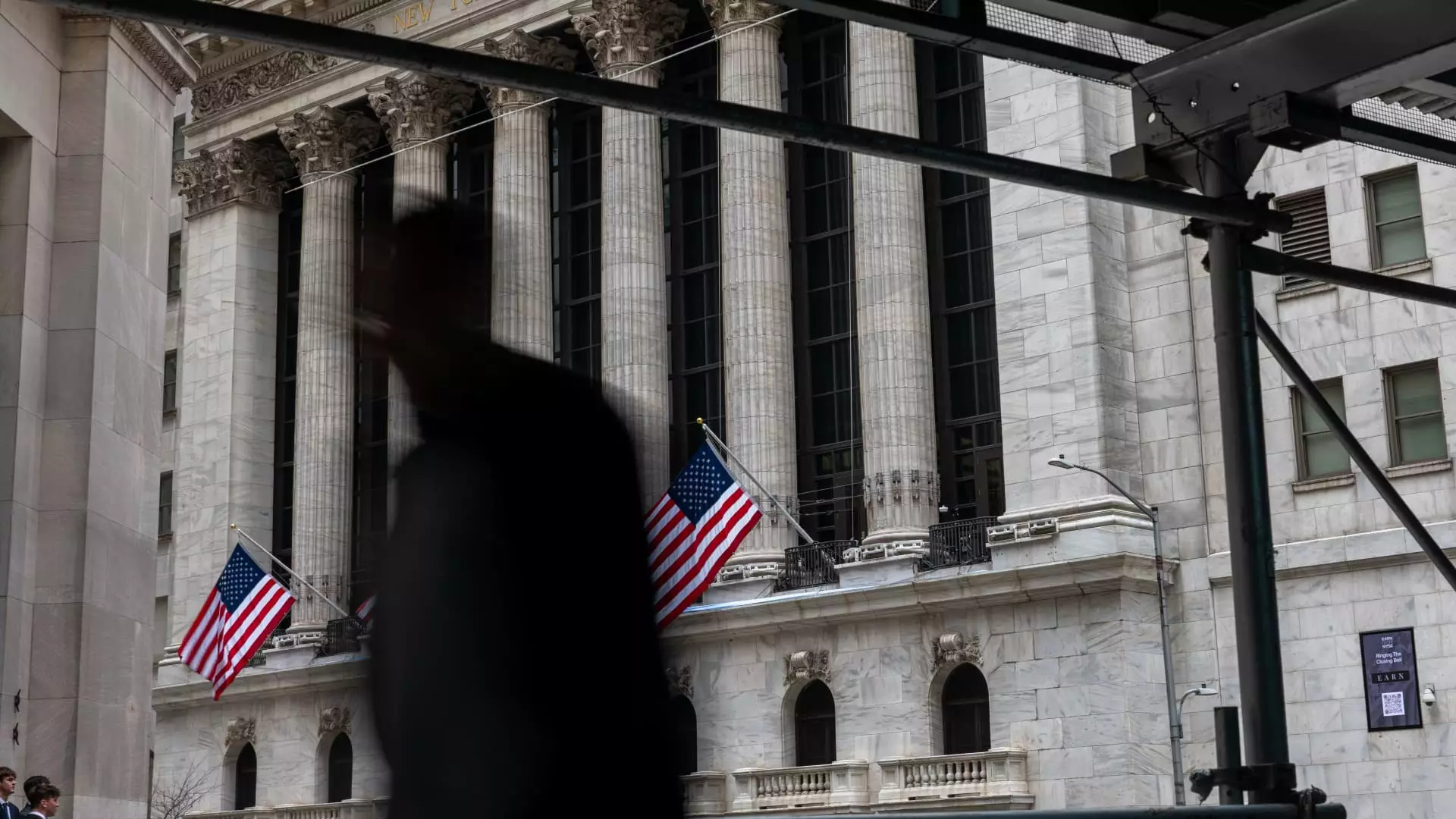In recent months, the global economic landscape has become increasingly polarized due to an escalating tariff war between the United States and China. The latest developments reveal a bold move by Beijing, suggesting that the Chinese government is utilizing the tariffs not just for financial leverage but as a strategic weapon aimed directly at the United States’ stock market. The surprising speed at which these tariffs are being implemented indicates a level of unpredictability that could set back economic relations between these two global powerhouses for years to come.
China’s decision to announce a staggering 34% tariff on all U.S. imports—a direct response to President Trump’s additional charges of the same rate—is laden with implications. What appears to be a tit-for-tat reaction may actually be a cunning attempt to exert psychological pressure on the U.S. equity markets, as Neo Wang from Evercore ISI suggests. By making this announcement during a time of decreased trading activity, Beijing seems intent on maximizing damage to the U.S. market, demonstrating a subtle yet aggressive form of economic warfare.
Unintended Consequences for China
However, this approach is fraught with risks and inconsistencies. Evercore ISI warns that while Beijing aims to inflict pain on the U.S. economy, it may also be shooting itself in the foot. The heavy dependence on American technology and imports underlines the vulnerability of China’s own economy. By imposing blanket tariffs, the Chinese government runs the risk of deepening economic turmoil at home, potentially inciting backlash from their own business sectors, which rely heavily on transnational trade for growth and innovation. The ramifications on domestic markets could be devastating, sparking unrest at a time when the Chinese Communist Party seeks to project an image of strength and stability.
The strategy also raises questions about the long-term viability of negotiations. The aggressiveness displayed by Beijing may serve momentarily to bolster their bargaining position. Still, it could just as easily push away potential allies and exacerbate tensions, leading to a standstill rather than resolution. Analysts believe that although China may be betting on a swift end to tariff hostilities, it is possible that this posture could backfire—forcing further escalations and retaliation from the United States.
A Fragile Economic Balance
The situation is delicate. U.S. equities were clearly rattled after the announcement of these new tariffs, with significant losses across major indexes. The Dow Jones, S&P 500, and Nasdaq experienced sharp declines, trapping investors in a web of uncertainty. With the Nasdaq now classified as in a bear market—down over 20% from its record highs in December—the ramifications of this tariff war extend beyond mere numbers; they touch the lives of everyday Americans, whose retirement savings, job security, and economic futures are tied to stock market performance.
From a center-right perspective, one could argue that President Trump’s hardline stance has created a necessary confrontation that could lead to a more favorable trade agreement down the line. However, such strategies require careful calibration; pushing too hard may harden Beijing’s resolve. If the goal is negotiation, we must ask—are such drastic measures a sensible approach?
The Uncertainty Ahead
As both nations wrestle with pressure tactics, the outcome remains uncertain. China’s aggressive posturing in response to U.S. tariffs signifies a calculated move, but the economic environment is anything but predictable. While some analysts argue that such actions could force the U.S. to reassess its approach, others caution that this tit-for-tat game could lead to an economic deadlock with far-reaching consequences.
It’s unclear how these strains will play out, but what remains evident is that this clash will define the economic narratives of both countries for years to come. Given the interconnectedness of global economies, the stakes could not be higher. Whether China’s gamble proves beneficial or catastrophic may well rest on future negotiations and the ability of both sides to temper their rhetoric and take a step back from the edge of this escalating trade confrontation.

